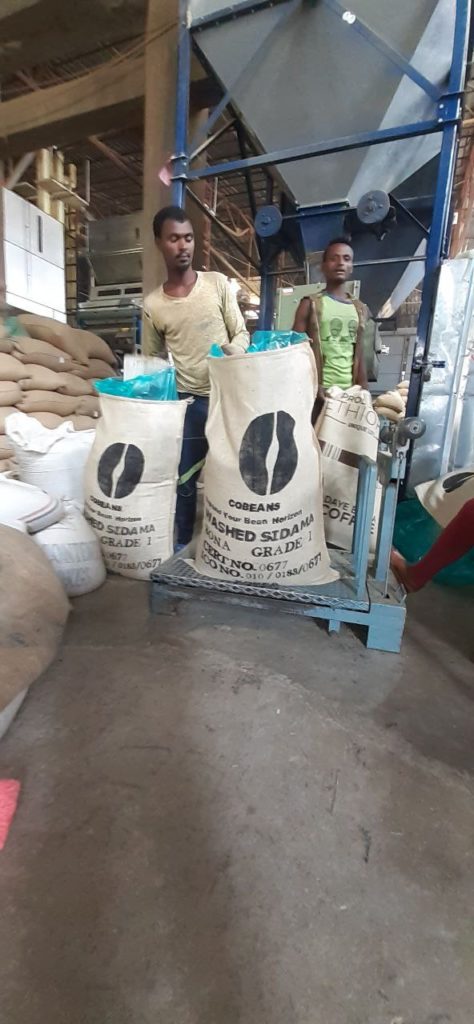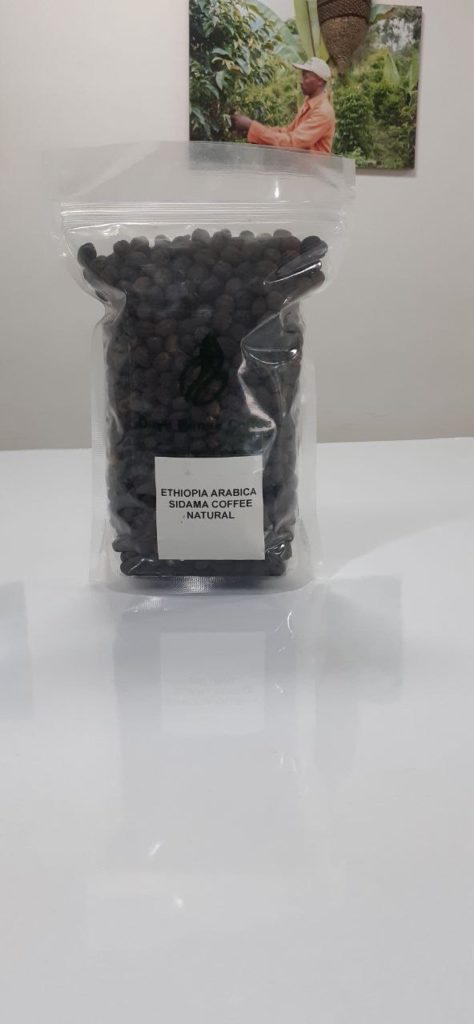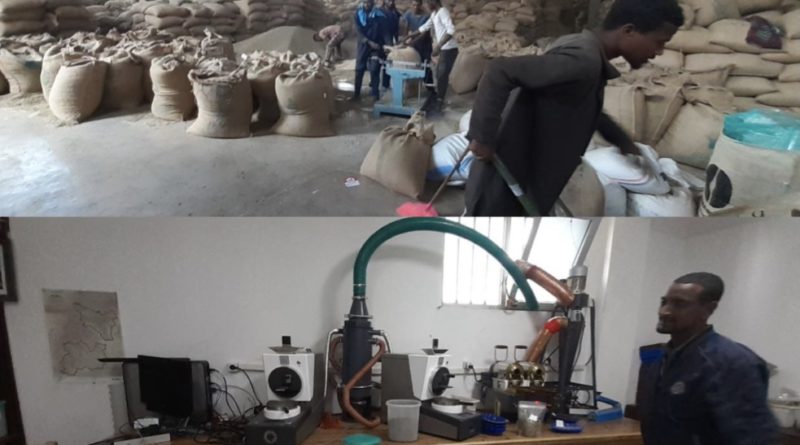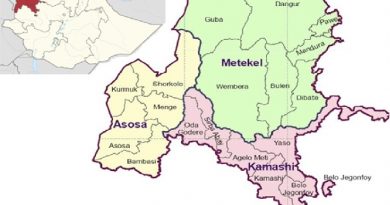Ethiopian Red Cheery Bean & International Market: Sidama-Oromia coffee
By Obolessa Adola: Yeroo Media
The history of coffee is a fascinating story. Its remarkable how one small bean taken from tiny trees in Ethiopia could become the 2nd largest commodity traded in the world today. The origin of the beloved bean starts with Kaldi and his goats in 700 AD. Kaldi, an Ethiopian goat herder stumbled on his goats acting quite strange.
Another story, however, claims that Kaldi shared these beans with a monk who disapproved of their use and threw them into the fire. The result was a wonderful, pleasing aroma which became the world’s first roasted coffee. Shortly after this, the beans were ground and boiled to produce what we know today as coffee.
Coffee production and preparation process
Hopefully every Ethiopian has come across a coffee bean tree with its either green or ready to be reaped red cherry bean. After the basic natural growing process, the red coffee bean will be collected from the tree by hand and then dried using a locally handmade bed mat called KASHA or processed in a coffee processing mill. Then it will be ready for either immediate roasting of a magical sip or packed to be shipped for a foreign currency in Ethiopian case.
DAYE BENSA Coffee is one of major coffee exporting companies in Ethiopia exporting green bean coffee directly from its own farms and farms of affiliate farmers. Daye Bensa Coffee exports various Coffees of different grades from conventional to specialty with more than 20 years in the coffee business.
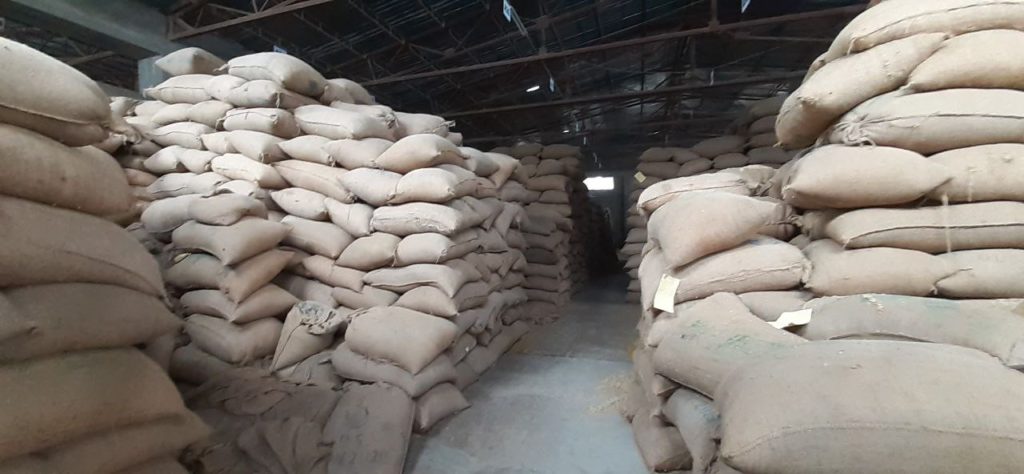
The business works with more than 2500 farmers across Sidama and some parts of Oromia region. As per Mr. Elias Dukamo Korma, an operation and trader officer now they own and run 3 farms, 43 washing stations and 6 dry mills. This capacity helps them achieve to export 7500 tons of green bean coffee to their 43 international clients and profited 31 million USD in the 2020 year alone.
Daye Bensa has strong vertical relations with its member, including farmers and all stakeholders. For instance, the profit sharing is completed in two terms says Elias Dukamo. First, when farmers brought their yields on cultivation season and a second payment when their coffee is sold on international market. This profit sharing process keeps farmers inline to produce their coffee up to specialty standard. Other incentives such as helping farmers with their farms, giving special seeds, providing better education for their children, health facilities for their family members.
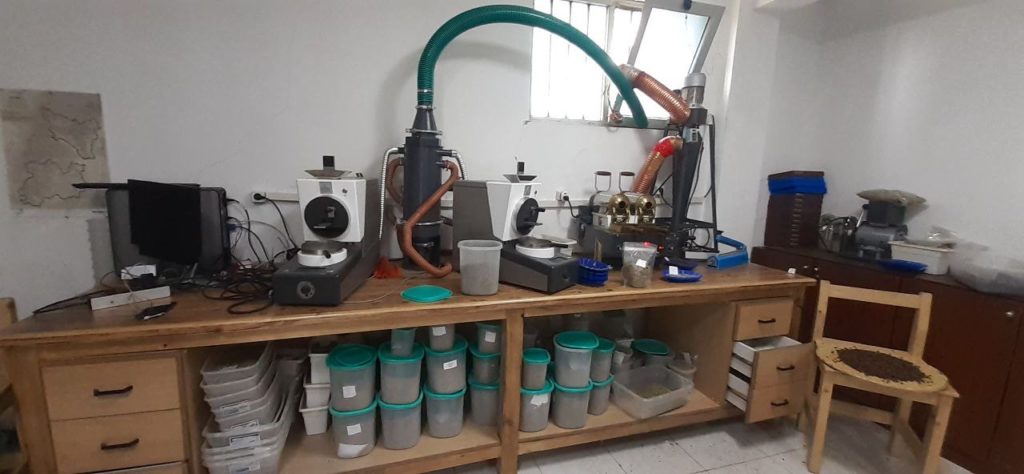
Kenean Assefa Dukamo, an Export manager at Daye Bensa, has shared the long held vision of preparing a value added coffee. There is an ongoing research to make a roasted coffee ready to be packed for export. Even if the regulation from government of Ethiopia for value added product is encouraging the lack of experience and tough competition from coffee makers globally makes it a very step slope to climb, but claims the energetic Kenean he hopes to see Daye bensa name packed on a coffee can/veil in supermarket shelves sooner.
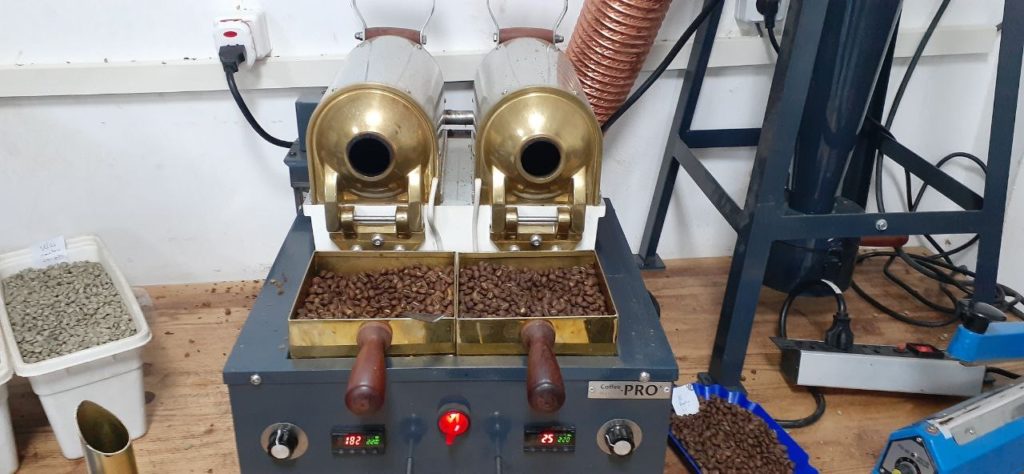
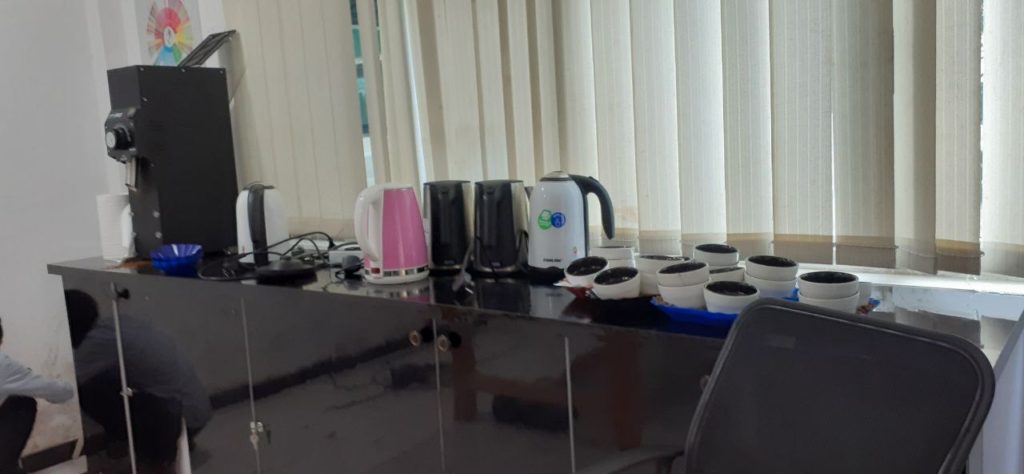
Cup of excellence
In the 2021 Ethiopian cup of Excellence competition Daye Bensa coffee came out 8th with 88.57 score where the number one in the line scores 90.60. Daye Bensa scores 7th in the 2020 competition.
Cup of excellence is a competition and auction for high quality coffees. Since 1999 the cup of excellence program has set the standard for the increased premiums that farmers have been able to receive for their exemplary coffees. Cup of excellence also raises funds for coffee farmers in coffee producing countries incentivizing and motivating farmers who know there can be a recognition and financial reward for their hard work and effort. In Ethiopia the competition is held for the second time even if it is around for almost two decades globally.
Both Mr Tatek and Elias agree on one thing, cup of excellence competition has sprung up the quality coffee competition among producers. Hence the competition is very rigorous with cupping evaluations conducted over three stage process by industry experts it scrutinizes participants in terms of coffee quality up to the highest standard.
Ethiopian coffee in global market
Ethiopia is situated 5th in the global coffee market. Leading the top 5 are Brazil, Vietnam, Colombia and Indonesia. Ethiopian coffee has raised a record breaking 907 million USD in 2021. According to statistics compared to the top scoring Brazil, it is up to 10 times smaller. Still argues Mr Tatek Girma, market development and promotion director at Ethiopia coffee and tea authority, almost half the amount exported coffee is consumed in the local market and sold out in illegal market. This would have raised a considerable amount of foreign currency. As a policy, coffee for domestic usage is discouraged as much as possible. This is to exchange the produced coffee for a foreign currency which the government of Ethiopia and the national economy badly needs.
To help prevent this obvious coffee sneaking process, the new proclamation forbids coffee transacting actors to not present grade 1-3 specialty coffee for a local market. Whereas the below specialty coffee will be available for local consumption. Still coffee market actors at all level are not abiding by the rule says Mr Tatek Girma.
As per proclamation of coffee market and quality control the authority to oversee coffee in Ethiopia has and will set the lowest selling value for coffee market to help prevent under standard coffee to flow in the market. Mr Tatek also added that the coffee selling market process has been shortened starting from farmer up to final seller. This will help unnecessary retail and reselling intermediary between coffee producer farmer and the final farmer. This means in practice a farmer can also be an exporter. The proclamation is claimed to be prepared with an experience shared from Latin America nations.
Challenges of Ethiopian coffee in the global market
Ethiopians are heavy coffee drinkers, ranked as one of the largest coffee consumers in Sub Saharan Africa. Nearly half of produced coffee have been locally consumed, hence Coffee in Ethiopia has both social and cultural value. It mainly is consumed during social events such as family gatherings, spiritual celebrations, and at times of mourning too.
Also the old and backward coffee drying method and not up to date washing sites decreases the quality of coffee competition in the global market. To solve various issues, the Ethiopian Coffee and tea authority is playing its role by raising awareness, issuing a coffee marketing and quality control regulation.
Even if the coffee produced and roasted locally has made us awe in wonder of its taste, there still remains a long way to top quality for Ethiopian coffee. When navigating the complex maze of policy and bureaucracy is improved, and fair competition is facilitated, the small scale coffee producers and exporters will gain their fair price. Currently the global coffee market is very volatile yet still the red cherry bean from Ethiopia could one day become positioned as a price-setter.
